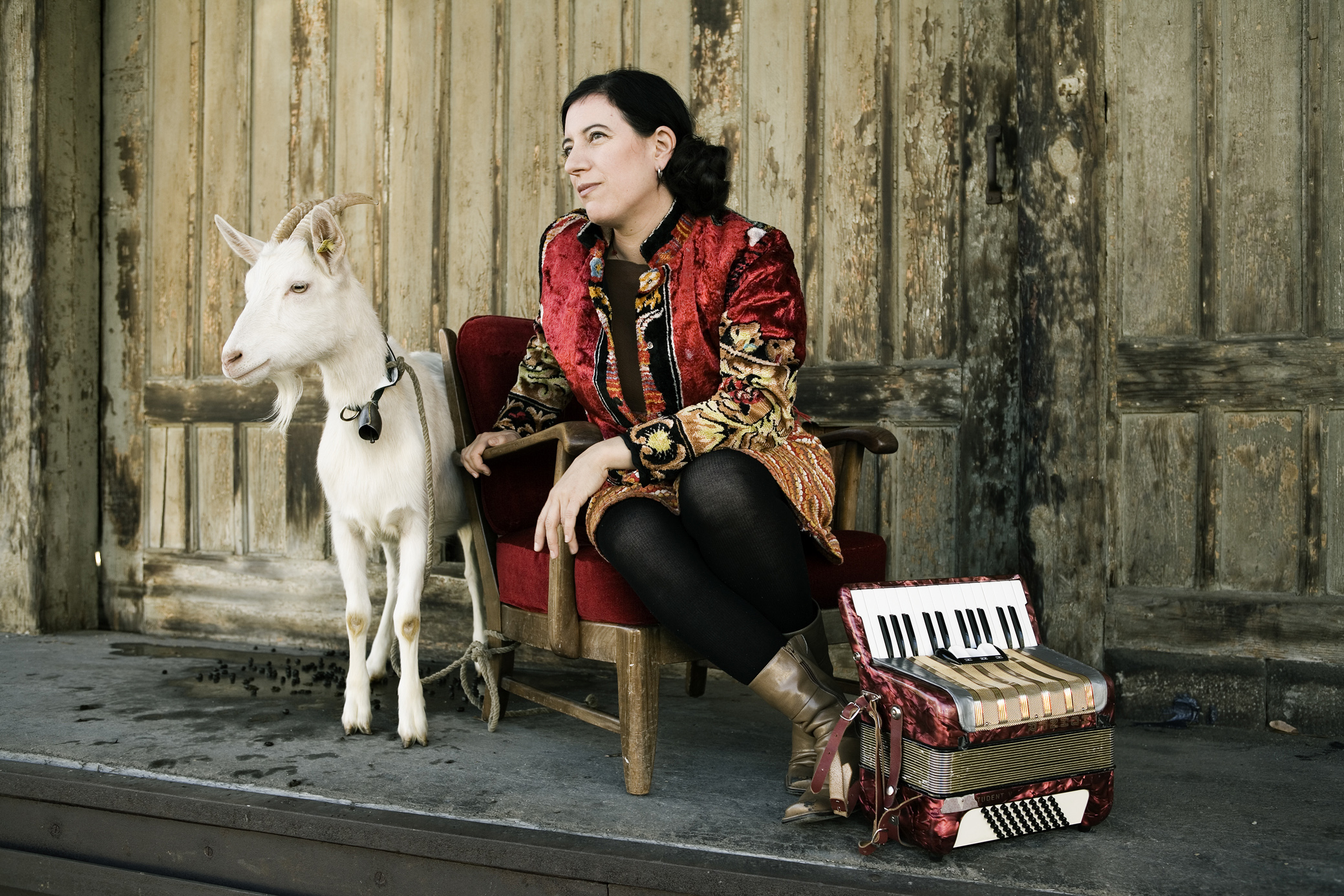
Yodelling reinvents itself for the modern day

As the Swiss yodelling association celebrates its 100th anniversary, the status of this form of traditional singing in Switzerland is unclear.
While for some observers it is the symbol of the past and a vector of clichés, others see it as an evolving art that is perfectly respectable and part of the world music club.
“It’s the voice being used as a musical instrument, whereby singers are able to change from the vocal register to the head register,” explained Laurent Aubert, a Geneva ethnomusicologist.
“This technique can be found in a number of African countries, as well as in Georgia, Mongolia and in most Amerindian groups.”
Yodelling is a deeply ingrained Swiss tradition, according to Karin Niederberger, president of the association. “For me, it represents a part of my heritage,” she told swissinfo.ch.
Love of the homeland, unity, strength of tradition are just some of the terms Niederberger uses in her introduction to the association’s new 450-page guide, published for the centenary.
The use of this terminology doesn’t surprise Thomas Antonetti, curator of the Lötschental museum in canton Valais.
“Folk music has always been lively, but the desire to defend a Swiss identity in the 1920s and 1930s led to its development being frozen. Some associations wanted to define exactly what was authentic and what wasn’t,” he said.
Niederberger says though that yodellers aren’t just singing about an alpine paradise.
“Of course most singers are interested in the Alps, flowers, children’s eyes and sunshine. But that’s because most composers come from villages and express what they feel,” she added.
“But there are also compositions that are related to the darker side of life.”
Open to all
Niederberger also rejects the notion that yodelling is something conservative and only open to locals. “Anyone can join a club where you can learn how to toss a flag, blow an alphorn or yodel.”
While yodelling has trouble attracting city dwellers, it is often an integral part of village life in many areas of German-speaking Switzerland where local associations play an important social role.
“There is a form of traditional yodelling, the ‘jutsy’ that is part of village life, and another that is formatted to be exported abroad and aimed at tourists,” said Aubert.
Yodelling has to a certain extent become a small industry, dragging the music form into the 21st century with the addition of instruments such as drums and guitars. The newer compositions have made their way in the hit parade.
For Niederer, this is not a problem for traditionalists. “It’s better if our music has wider recognition, if it reaches people who otherwise wouldn’t listen to it,” she said.
Exotic outposts
Over the years, yodelling has caught on overseas, even reaching exotic outposts such as Japan and South Korea with local groups. In the United States, Bavarian, Austrian and Swiss immigrants helped create country music.
Singer Erika Stucky can trace her musical roots back to Europe. “I was born in 1962 in San Francisco and my father used to bug us with his yodel records,” she told swissinfo.ch.
“It was his way of expressing his homesickness, of preserving his world. At the same time, I grew up with images of yodelling cowboys on their horses, and their songs seemed so exotic and alive that I never thought they were old-fashioned.”
Stucky sought inspiration for her songs in that past, but molded it her own way. “I am a dual national, so I feel free to yodel as I please,” she said. “I don’t feel any pressure or the prejudices of an older Switzerland.”
The appearance of so-called world music and new festivals since the 1970s has also helped boost the careers of a new generation of yodelling specialists, such as the group Sonalp or Christian Zehnder, who are not afraid to mix yodelling and alphorns with foreign sounds from Asia or Africa.
“This new generation expresses a sort of anti-nostalgia,” Antonetti told swissinfo.ch. “They have freed themselves from ideology and patriotism by turning their backs on strict criteria.”
“They have taken their inspiration from our traditions to make something new.”
Isabelle Eichenberger and Eveline Kobler, swissinfo.ch (Adapted by Scott Capper)
The Swiss yodelling association, which celebrates its 100th anniversary on May 8, has 21,000 members.
Besides yodellers, its membership also includes flag tossing specialists and alphorn players.
The association organizes a national yodelling festival every three years.
The last one was held in Lucerne in 2008, with 12,000 participants and attracting 360,000 people from Switzerland and abroad.
The next festival will be held in Interlaken in 2011.

In compliance with the JTI standards
More: SWI swissinfo.ch certified by the Journalism Trust Initiative




























You can find an overview of ongoing debates with our journalists here . Please join us!
If you want to start a conversation about a topic raised in this article or want to report factual errors, email us at english@swissinfo.ch.